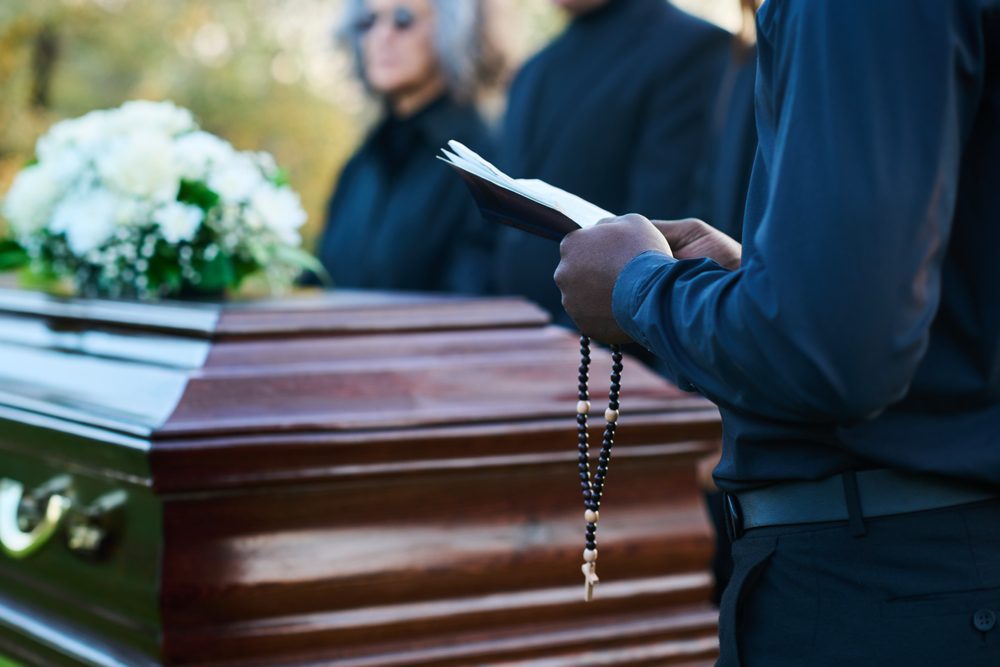The somber atmosphere of a funeral should be a time for families to come together, finding solace in shared memories and mutual support. However, reality often tells a different tale. Far too frequently, funerals become the backdrop for familial discord, as emotions run high and tensions simmer beneath the surface. In this exploration, we delve into seven reasons why families may find themselves in the midst of conflict during what should be a time of unity.
1. Unresolved family issues
One of the primary catalysts for discord at funerals is the presence of unresolved family issues. Whether it’s longstanding resentments, past disagreements, or unspoken tensions, the mourning period can amplify these emotions, leading to heated disputes. The grief experienced during a funeral may act as a catalyst, bringing to the surface long-buried animosities that family members may struggle to contain.
2. Inheritance matters
Funerals often shine a spotlight on the question of inheritance. The distribution of assets and belongings can become a breeding ground for conflicts, especially when the deceased has not left a clear and legally binding will. Siblings and other relatives may find themselves at odds, each vying for what they perceive to be their fair share. The grief and vulnerability of the moment can intensify these disputes, turning a solemn occasion into a battleground for material possessions.
3. Differing grief processes
Grieving is a deeply personal experience, and family members may find themselves on divergent paths of mourning. Some individuals may express their grief openly, seeking comfort through shared memories and emotional conversations. Others may prefer a more private approach, dealing with their emotions in solitude. These differing coping mechanisms can lead to misunderstandings and conflicts, as family members grapple with the varying ways in which grief manifests itself.
4. Religious and cultural differences
Funerals often involve religious or cultural rituals that are deeply ingrained in the fabric of a family’s identity. When there are differing beliefs within a family, clashes over the appropriate funeral customs can arise. From the choice of burial or cremation to the specific rites performed, disagreements rooted in religious and cultural disparities can turn a funeral into a battleground of conflicting traditions.
5. Financial strain
The financial burden associated with funerals can be a significant source of tension within families. Planning and executing a funeral can incur substantial costs, and disagreements over how to manage these expenses can lead to strife. Family members may have differing opinions on the appropriateness of elaborate ceremonies or may struggle to allocate financial responsibilities fairly. In times of grief, financial decisions can become emotionally charged, exacerbating existing tensions.
6. Long-standing sibling rivalries
Sibling rivalries that have simmered for years can come to a head during the emotional turmoil of a funeral. Issues of favoritism, perceived slights, or competition that have festered since childhood may resurface, causing tension among siblings. The funeral setting, meant to be a time of unity, can inadvertently become a stage for the rekindling of old rivalries and disputes.
7. Lack of communication
In times of grief, effective communication becomes more crucial than ever. However, families may find themselves grappling with a lack of communication, leading to misunderstandings and conflicts. Unspoken expectations, assumptions, and unaddressed concerns can create a toxic atmosphere, where emotions are high, and communication breakdowns become a breeding ground for disputes.
While funerals are intended to be a time for families to come together and support one another, a variety of factors can contribute to discord instead. From unresolved family issues to financial strain and differing grief processes, the emotions surrounding a funeral can bring longstanding tensions to the forefront. Navigating these challenges requires empathy, open communication, and a shared commitment to honoring the memory of the departed loved one. By recognizing and addressing these potential sources of conflict, families can strive to turn funerals into occasions for healing and unity rather than discord and division.
This story was created using AI technology.
















